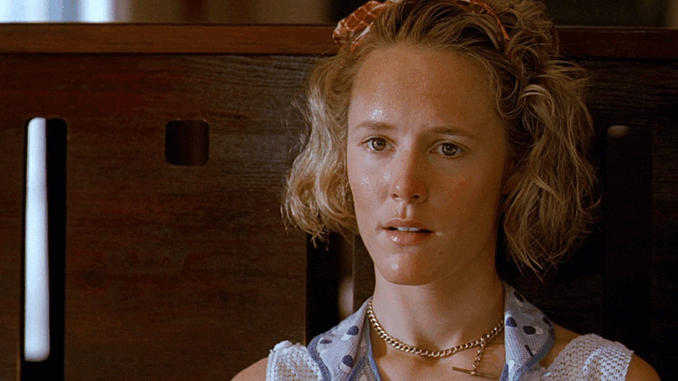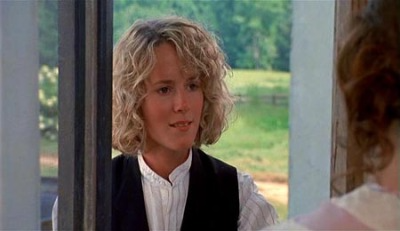
In the tapestry of Southern cinema, few characters have left a mark as memorable as Idgie Threadgoode. Wild, fearless, and fiercely loyal, Idgie is the emotional and moral heart of Fried Green Tomatoes—a character who challenges conventions, defends the marginalized, and lives unapologetically on her own terms. As decades pass, she continues to resonate with audiences as a symbol of individuality, love, and resistance.
A Portrait of Defiance
From the moment Idgie steps into the screen—clad in suspenders, tomboyish charm radiating from every movement—it’s clear that she is unlike any other woman in 1920s Alabama. She refuses to conform to the expectations placed on women of the time. She hunts, she fishes, she drinks, and she swears. But beneath that scrappy surface is a heart fiercely devoted to justice and the people she loves.
Idgie’s rebellion isn’t loud for the sake of it—it’s rooted in compassion. She stands up to abusers, protects her community, and runs the Whistle Stop Café not only as a business but as a safe haven.
Her Love for Ruth: A Bond That Defines Her
At the core of Idgie’s story is her relationship with Ruth Jamison. When Ruth first arrives in Whistle Stop as a refined, Bible-reading houseguest, their connection seems improbable. But over time, we see their bond deepen into something intimate, protective, and profound.
Though the film, constrained by 1991 Hollywood, stops short of labeling their relationship romantic, the chemistry between Idgie and Ruth is undeniable. It’s in the glances, the gestures, the sacrifices. Idgie doesn’t just love Ruth—she builds a life around her, raising Ruth’s son Buddy Jr., and shielding her from an abusive past.
In today’s world, many viewers see their relationship as a pioneering queer love story, delicately told and rich with subtext. For those seeking LGBTQ+ representation in cinema history, Idgie stands as a quietly revolutionary figure.
A Symbol of Chosen Family and Community

Beyond her love for Ruth, Idgie is a protector of her extended family—including the café’s Black employees Sipsey and Big George. In an era of rampant racial injustice, Idgie treats them with dignity and equality, even risking her safety and reputation to cover up a murder she didn’t commit in order to protect them.
This loyalty to chosen family is one of Idgie’s defining traits. She doesn’t follow rules written by others—she lives by her own moral code, one rooted in fairness, love, and instinct.
The Myth and the Mystery
Part of what makes Idgie so magnetic is the mystery that surrounds her. Is she the bee-charming child of legend? Did she really face down a train in her youth? Was she the one who killed Frank Bennett? The film leaves some of these questions open, particularly through the storytelling of Ninny Threadgoode, who may or may not be Idgie herself in old age.
This mythic quality adds to Idgie’s legacy. She becomes more than a character—she becomes a legend passed down through storytelling, the kind that communities build around figures who make them believe in something greater.
Idgie Threadgoode Today: A Timeless Role Model
In the decades since the film’s release, Idgie has been embraced by viewers across generations. Feminists see in her a woman who refuses to be controlled. LGBTQ+ viewers recognize the power of her love story with Ruth. Southerners take pride in her grit, her hospitality, and her deep-rooted sense of place.
But ultimately, Idgie represents a version of freedom that speaks to anyone who has ever felt out of place in a rigid world. She shows us that it’s okay to be wild. To love deeply. To protect fiercely. To live fully—even if it means breaking a few rules.
Final Thought
Idgie Threadgoode may have lived in a quiet corner of fictional Alabama, but her spirit has traveled far beyond Whistle Stop. She reminds us that the truest kind of strength isn’t loud—it’s loyal, loving, and unshakably brave.
